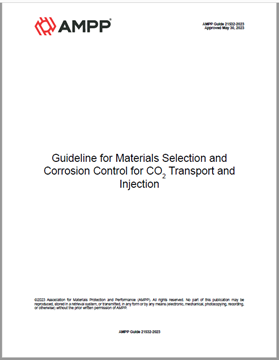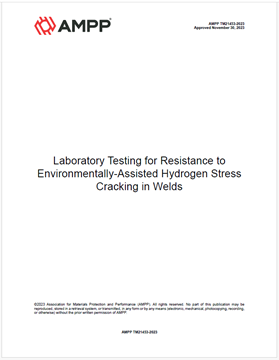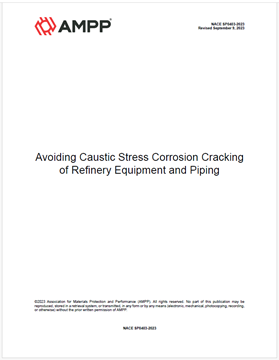Carbon and low-alloy steels in plate form and their welded products may be susceptible to one or more forms of environmental cracking when exposed to wet H2S service conditions. These include, for example, (1) sulfide stress cracking (SSC) of hard zones and welds; (2) hydrogen-induced cracking (HIC) in the parent metal; and (3) stress-oriented hydrogen-induced cracking (SOHIC) in the region adjacent to welds of nominally acceptable hardness. Extensive work has been conducted over many years to understand various fundamental and applied aspects of these phenomena. Experiences in refinery wet H2S operations have directed particular attention to understanding SOHIC and the various metallurgical and environmental parameters that govern its occurrence.
Scope
This standard was prepared to provide a test method for consistent evaluation of pipeline and pressure vessel steels to SOHIC caused by hydrogen absorption from aqueous sulfide corrosion. The test conditions are not designed to simulate any specific service environment. The test is intended to evaluate resistance to SOHIC only, and not to other adverse effects of sour environments such as sulfide stress cracking (SSC), pitting, or mass loss from corrosion.
Product Number:
AMPP TM21451-2023
Publication Date:
2023
$109.00
$109.00
$109.00
Or
Carbon and low-alloy steels in plate form and their welded products may be susceptible to one or more forms of environmental cracking when exposed to wet H2S service conditions. These include, for example, (1) sulfide stress cracking (SSC) of hard zones and welds; (2) hydrogen-induced cracking (HIC) in the parent metal; and (3) stress-oriented hydrogen-induced cracking (SOHIC) in the region adjacent to welds of nominally acceptable hardness. Extensive work has been conducted over many years to understand various fundamental and applied aspects of these phenomena. Experiences in refinery wet H2S operations have directed particular attention to understanding SOHIC and the various metallurgical and environmental parameters that govern its occurrence.
Scope
This standard was prepared to provide a test method for consistent evaluation of pipeline and pressure vessel steels to SOHIC caused by hydrogen absorption from aqueous sulfide corrosion. The test conditions are not designed to simulate any specific service environment. The test is intended to evaluate resistance to SOHIC only, and not to other adverse effects of sour environments such as sulfide stress cracking (SSC), pitting, or mass loss from corrosion.
Keywords: Pipeline, Pressure Vessel Steel, Stress-Oriented Hydrogen-Induced Cracking, SOHIC, hydrogen absorption, aqueous sulfide corrosion, four-point bend test, tri-axial stress




